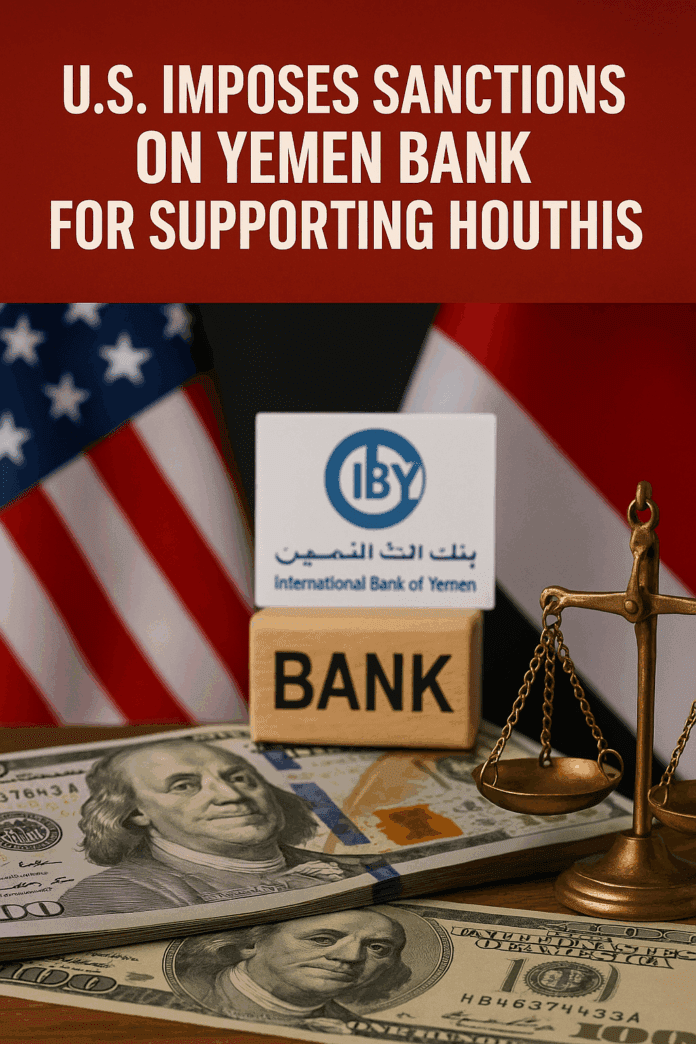The United States has placed new financial sanctions on the International Bank of Yemen (IBY). This step was taken because the bank is believed to be helping the Houthi group in Yemen by giving them financial support.
The Houthis are a powerful group involved in the ongoing conflict in Yemen. The US government sees them as a threat, especially because they are linked to Iran, a country often accused of supporting groups that act against the interests of the United States and its allies.
According to the State Department, this action is part of a broader effort to stop Iran’s threat network. By cutting off the money supply to the Houthis, the US hopes to weaken their ability to plan and carry out attacks, especially those targeting US forces and allies in the region.
Why Did the US Take This Step?
The main reason behind these sanctions is to disrupt the financial network of the Houthis. The US believes that the International Bank of Yemen plays a big role in helping the Houthis get access to money and banking services.
Mexican Cartel La Nueva Familia Michoacana Caught in U.S. Sanctions Storm
When a bank is sanctioned, it means that any money connected to it in the US or its allies can be frozen. It also blocks the bank from doing business with most international financial systems, making it very hard for them to function.
This is not the first time the US has taken such a step. Officials say they are using a “whole-of-government approach,” meaning that multiple branches of the US government are working together to stop groups that they believe pose a danger to peace and safety in the Middle East.
In addition to the bank itself, the US also sanctioned three of its top officials. These individuals are believed to be responsible for helping the Houthis manage their finances and stay connected to Iran’s broader network of allies.
What Else Did the US Reveal?
In a press briefing, a US State Department spokesperson also shared new information. She confirmed reports that a Chinese satellite technology company has been helping the Houthis as well. This company is accused of directly supporting attacks on US interests by sharing important satellite data.
Washington Lifts Sanctions on Antal Rogan, Hungarian PM’s Key Ally
What’s more, the US says it had already warned China about this company. Even after being told privately about the risks, China allowed the company to keep working with the Houthis. The spokesperson criticized this move, calling it an example of China not following through on its promises to support peace.
These new sanctions are a strong sign that the US is trying to cut off all possible support systems for the Houthis, especially when those systems involve powerful countries or large financial institutions.
By targeting the bank and revealing the satellite support from China, the US is sending a clear message. It wants to stop anyone — whether in the Middle East or elsewhere — from giving help to groups it considers a danger to security.
These sanctions are part of a much larger plan to put pressure on the Houthi group and their allies. By cutting off access to money and technology, the US hopes to make it harder for them to keep operating.


